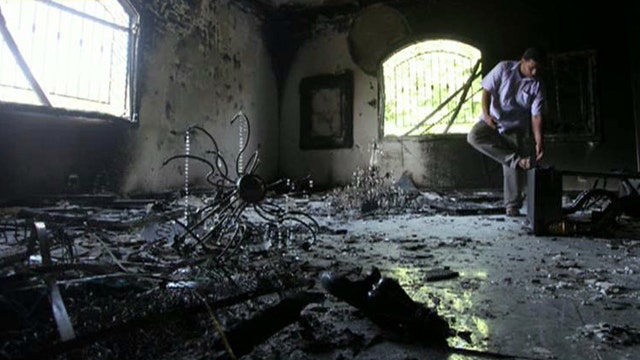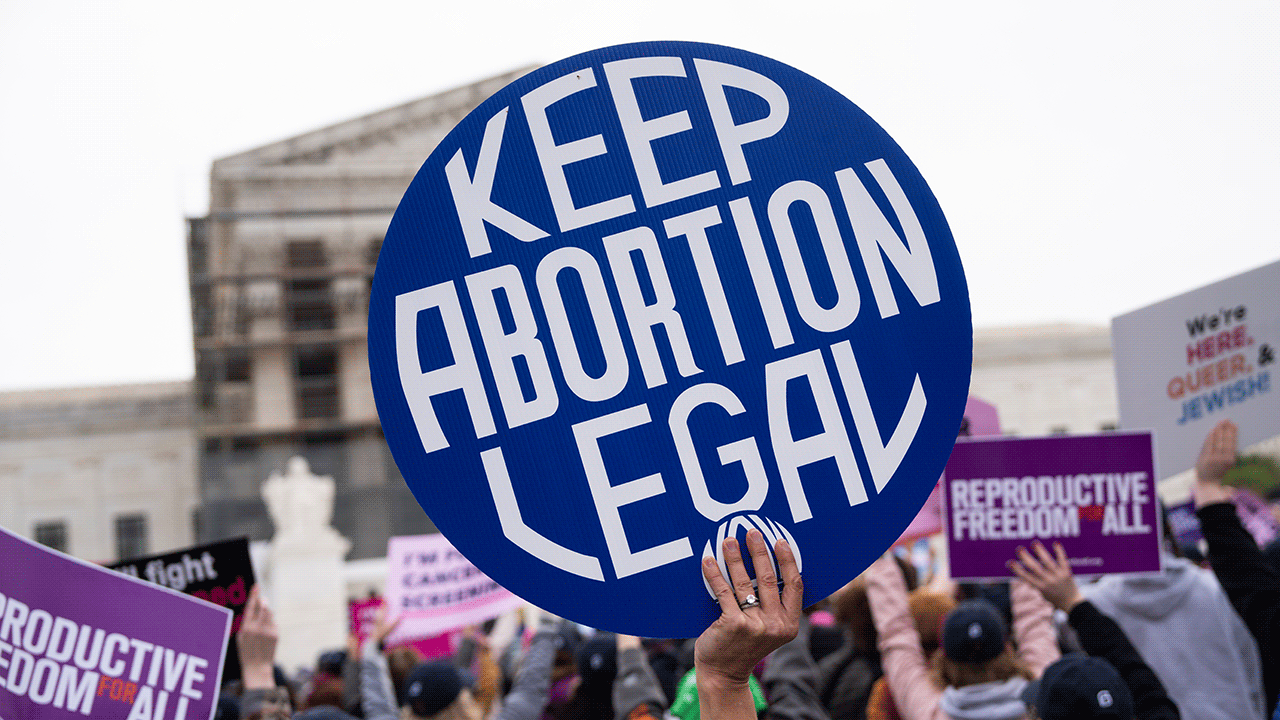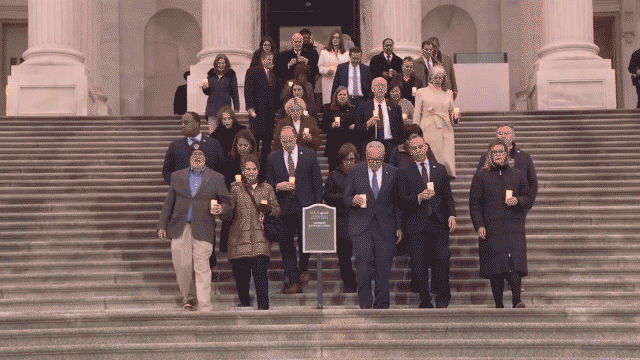Special ops veterans urge Congress to investigate Benghazi
700 sign letter pushing for answers on consulate attack
The terror attack on a U.S. outpost in Libya was preceded by security cutbacks authorized at the “highest levels” of the State Department, and the Obama administration’s explanation in the immediate aftermath of the fatal assault was altered to protect the agency, House Republicans said in a report on the issue released Tuesday.
The 43-page report is the work of five House committees and concludes that decisions to scale back security at the Benghazi, Libya, outpost went all the way up to then-Secretary of State Hillary Clinton.
The report cites a spring 2012 exchange in which Gene Cretz, the U.S. ambassador to Libya at the time, requested more security and Clinton responded by saying proceed with security-reduction efforts.
"Senior State Department officials knew that the threat environment in Benghazi was high and that the Benghazi compound was vulnerable and unable to withstand an attack, yet the department continued to systematically withdraw security personnel," the report states.
The Sept. 11, 2012, attack killed U.S. Ambassador Christopher Stevens and three other Americans.
Several days later, Susan Rice, the U.S. ambassador to the United Nations, appeared on five Sunday talks shows, saying the attacks were spontaneous and prompted by protests in Egypt over an anti-Islamic video.
Rice late said she misspoke, as administration officials said the talking points prepared for her by U.S. intelligence officials where scrubbed for the purpose of national security.
The House Republicans' report states the words “Islamic extremists” and links to Al Qaeda in Benghazi were removed following a meeting among White House deputies a few days after the attack.
A Republican aide told Fox News that Rice’s script was “altered” to protect the State Department for the inadequate security.
A source told Fox News the leaders of the House committees on Armed Services, Foreign Affairs, Intelligence, Judiciary and Oversight have seen the emails about changing the talking points but are still trying to acquire them.
National Security Council spokeswoman Caitlin Hayden said the report “appears to raise questions that have already been asked and answered in great detail by the administration.”
The release of the report comes as dozens of House Republicans separately have pushed for Speaker John Boehner, R-Ohio, to create a select committee to investigate the attack.
On Tuesday, top House Democrats criticized the report as partisan and urged Boehner to work with them instead of politicizing national security concerns.
“By abandoning regular order and excluding Democratic members entirely from this process, you are unnecessarily politicizing our national security and casting aside the system used by the House for generations,” they wrote.
Last December, senior State Department officials acknowledged major weaknesses in security and errors in judgment that had been revealed in a scathing independent report on the deadly assault.
Deputy Secretary of State William Burns and Deputy Secretary of State Thomas Nides admitted that serious management and leadership failures left the mission in Benghazi woefully unprepared for the terrorist attack.
Clinton, testifying before Congress in the final weeks of her tenure, took responsibility for the department's missteps and failures leading up to the assault. But she insisted that requests for more security at the diplomatic mission in Benghazi didn't reach her desk, and reminded lawmakers that they have a responsibility to fund security-related budget requests.
The report from the House committees is the latest broadside in what has been a long-running and acrimonious dispute between the Obama administration and congressional Republicans who have challenged the White House's actions before and after the Benghazi attack.
House and Senate Republicans for weeks fought for access to information about the attack and used the nominations of two key Obama administration national security officials -- Defense Secretary Chuck Hagel and CIA Director John Brennan -- as leverage to obtain internal documents about the raid.
The Benghazi raid also resonated during the presidential campaign as the Obama administration struggled in the weeks leading up to the Nov. 6 election to tamp down speculation of a cover-up involving the Benghazi attack.
Obama, in his role as commander in chief, failed to anticipate the significance that Sept. 11 held as a date and did not provide the Defense Department with the authority for missions beyond self-defense, according to the report.
Military assets were properly positioned across the North Africa region, but had no authority to be in an alert posture that would have permitted offensive operations and were given no notice to defend U.S. diplomatic facilities, the report said.
U.S. Africa Command, which has responsibility for military operations in the region, has serious deficiencies that hindered the Defense Department's response to the attack, according to the report. The command, which was established in 2008, has no Army or Marine Corps units assigned to it. When the attack occurred, the Pentagon had to order units attached to a separate command in Europe to respond.
The report defends U.S. intelligence officials, who are described as being vigilant in gathering information about threats in the region and warning senior U.S. officials of the deteriorating security environment in Benghazi.
The independent report by retired Adm. Mike Mullen and Thomas Pickering, a retired ambassador, as well as testimony from Clinton and other senior Obama administration officials have failed to assuage Republicans. Seven months after the attack, more than 100 House Republicans, led by Rep. Frank Wolfe, R-Va., have backed a resolution calling on Boehner to create a special congressional panel to investigate.
The Associated Press contributed to this report.

























